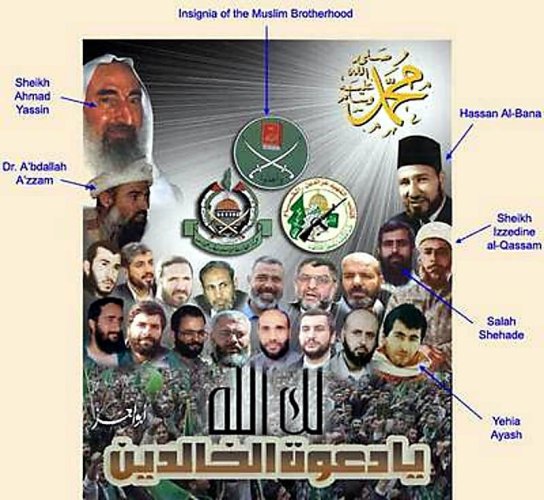
Can a civilization that tore itself apart put itself back together?
Some six centuries ago, Western civilization began to claw its way out of the great wilderness of the Dark and Middle Ages.
In an astonishingly short time, the cultural, technological, and military pre-eminence it once held at the height of the Roman Empire was reclaimed, then surpassed. The Renaissance, the Age of Discovery, the Enlightenment, and the Industrial Revolutions saw Western peoples conquer the far flung corners of the globe, penetrate previously opaque mysteries of nature, and set foot on an alien celestial body — less than 500 years separated Columbus’ first footsteps in North America from Neil Armstrong’s small step on the Moon.
At the dawn of the second decade of the 21st century, however, the edifice of Western civilization teeters precariously on shaken foundations. The symptoms of cultural decay — plunging birth rates, empty churches, economic instability — rage like an untreated fever. Once-conquered peoples of the Far East are now our creditors. The colonization of space has been abandoned. The global financial system created and underwritten by the West now appears a fragile ecosystem that few can understand and fewer can predict; the prosperity it once seemed to guarantee now appears frighteningly evanescent.
In retrospect, historians will recognize the 20th century as the era in which the West began to consume itself from within. The process was twofold:
1) A nearly century-long intra-civilizational civil war, encompassing both World Wars and the Cold War, which pitted the totalitarian and democratic strains of the West against one another in mortal combat. (Karl Marx, a German who wrote in England, is as much a Westerner as Thomas Jefferson.)
This conflict destroyed the losers and exhausted the victors, exacting a horrific cost in blood and treasure on the entire civilization. How many potential geniuses fell on the battlefields of Europe in the Bloody Century? What great innovations and advancements lay stillborn in the countless military cemeteries of the Continent? The intra-civilizational war was the greatest catastrophe in history — tens of millions of lives and trillions of dollars sacrificed — which left deep and lasting tears on the moral fabric of every Western nation, victor and vanquished alike.
2) Governments of the West began in the 20th century to gather more and more power over their citizens and their economic activities, establishing powerful redistributionist agencies to transfer wealth from producers to non-producers. “Welfare” was born. As the century progressed, even nominally free Western nations began to guarantee ever-greater measures of material comfort to citizens in the form of subsidized retirement and medical care programs.
These programs, however, were based on flawed demographic and economic assumptions — people live longer now than they did in the 1930s, when many such programs were instituted, for example. As a result, the expense of such well-meaning largess has now far exceeded the capacity of governments to pay. Entitlements have become a giant boulder that Western nations are obliged to push, Sisyphus-like, up the hill of economic productivity. And our entitlement boulder becomes larger and heavier with each step.
So vast have the obligations become that Western governments will never be capable of delivering fully on the promises they have foolishly made to their citizens. Borrowing and deficit spending have for decades put off the coming and inevitable reckoning. They have guaranteed that it will be all the more terrible when it finally arrives.
An existential civil war and untenable socio-economic policies combined in the 20th century to exhaust and bankrupt the West economically, creatively, and morally. What this slow civilizational suicide means for the average Western citizen is a future that will be — if present trends continue — less free, less prosperous, and less stable.
But it need not be so. The West has always demonstrated a remarkable capacity for renewal, thanks largely to the astonishing achievements and shining examples at the very dawn of the West. We emerged from the long night of the Dark Ages only when we reclaimed our classical heritage: the rediscovery of Aristotle and Homer put us back on the path to Einstein and Shakespeare; the return of Cleisthenes and Cicero gave us Washington and Churchill.
Will we have the sense to again turn to the minds that birthed our civilization when again we are tasked with the rebuilding of their magnificent creation?
Matt Patterson is senior editor at the Capital Research Center and contributor to Proud to be Right: Voices of the Next Conservative Generation. His email is mpatterson.column@gmail.com.
NOTE:

Few Americans today, if any, can predict whether or not America can "put itself together again" ... multiculturalism, seeking a "hope and change" (according to Obama's overused slogan) that included embracing an ideology of the 6th Century ... were not what most Americans had hoped for and yet, within the last few years, our nation has witnessed "change" that allows Islamic flags to fly over Washington, DC; allows those who prefer to see the West and Israel wiped out in exchange for an ideology that pre-dates the Dark Ages to build their mosques upon the very site where they had previously attacked and murdered almost 3,000 Americans; watches our Constitution trashed in exchange for "tolerance" of those who cannot accept and live peacefully in today's civilization; ... all these and more, do little to demonstrate an America that was an example and Beacon of Light to the Nations.
Have we become both numb and blind to the corruptness pouring from those who should be leading this great nation? ... Americans let their voices be heard last November; may 2012 be the return to a more stable form of leadership among those men and women elected to serve our country and its citizens.

















